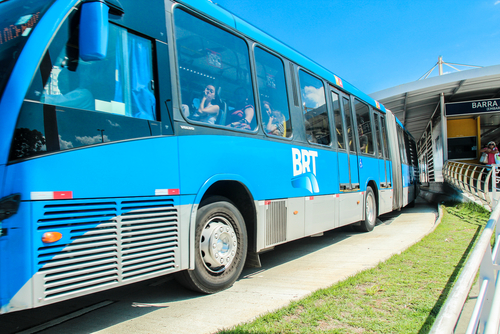
On Wednesday, the Colorado Department of Transportation said it was launching a new Bus Rapid Transit (BRT) program in Denver.
The new program will build BRT routes on sections of Federal Boulevard, Colorado Boulevard and eventually Colfax Avenue east of I-225 in the Denver region. More RT work is underway on CO 119 in Boulder County, the CDOT said, and future rapid transit service is being planned for CO 7 between Boulder and Brighton.
“Today’s announcement shows that we are delivering an important part of the CDOT’s Ten Year Plan, and that years of collaboration with our regional partners are setting Colorado up to leverage new sources of federal funding as we expand high quality transit options in the Denver area,” Shoshana Lew, CDOT’s executive director, said.
Officials said BRT is more reliable, convenient and accessible than traditional bus service and achieves high quality service because it reduces delays and prevents crashes involving pedestrians, bicyclists and vehicles in heavily traveled urban roads. Additionally, officials said, because it increases the number of people traveling on a road while using fewer vehicles, BRT reduces congestion and greenhouse gas emissions.
Environmental studies and design work have already started, the department said, along a route covering 18 miles of Federal Boulevard in south Denver. The route will provide more than 1 million bus rides a years to places like Regis University and Empower Field, as well as multiple neighborhoods, retail districts, churches and community centers.
Additionally, the department is studying a multimodal corridor, and starting planning and design work soon on a BRT route along Colorado Boulevard from I-70 to I-25. The department said the study will identify short-term pedestrian and bicycle improvements and build community engagement prior to the BRT design.
“A critical part of BRT planning is strong public and community engagement,” said Jessica Myklebust, regional transportation director for CDOT’s Denver metro region. “The success of a strong BRT program depends greatly on the partnership with the communities where the corridors are located. CDOT will have robust public outreach. BRT will connect our urban corridors and communities, providing vital transportation options that allow us access to jobs, shopping, health care, education, recreation and life.”